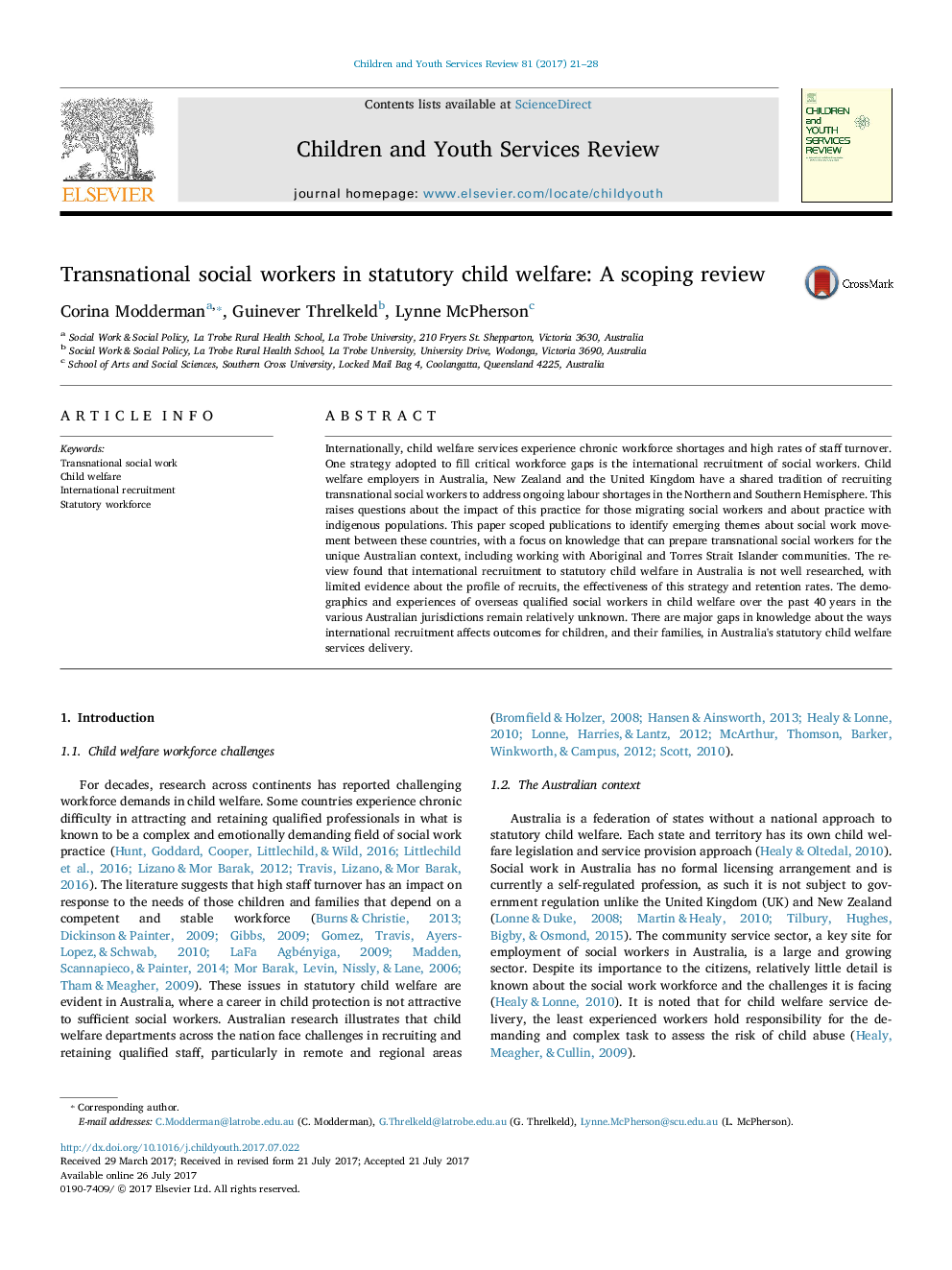ترجمه فارسی عنوان مقاله
کارگران اجتماعی فراملیتی در رفاه کودکان قانونی: یک مرور کلی
عنوان انگلیسی
Transnational social workers in statutory child welfare: A scoping review
| کد مقاله | سال انتشار | تعداد صفحات مقاله انگلیسی |
|---|---|---|
| 123680 | 2017 | 8 صفحه PDF |
منبع

Publisher : Elsevier - Science Direct (الزویر - ساینس دایرکت)
Journal : Children and Youth Services Review, Volume 81, October 2017, Pages 21-28
ترجمه کلمات کلیدی
کار اجتماعی متعارف، رفاه کودکان، استخدام بین المللی، نیروی کار قانونی،
کلمات کلیدی انگلیسی
Transnational social work; Child welfare; International recruitment; Statutory workforce;
ترجمه چکیده
در سطح بین المللی، خدمات رفاهی کودکان، کمبود نیروی کار مزدی و میزان بالای گردش کارکنان را تجربه می کنند. یک استراتژی تصویب شده برای پر کردن شکاف های نیروی کار مهم، جذب بین المللی کارگران اجتماعی است. کارفرمایان رفاه کودکان در استرالیا، نیوزیلند و انگلستان سنت مشترک را برای جذب کارگران اجتماعی فراملی برای رسیدگی به کمبود نیروی کار در نیمکره شمالی و جنوبی دارند. این مسئله سوالاتی راجع به تاثیر این تمرین برای مهاجرت کارگران اجتماعی و در مورد تمرین با جمعیت بومی می کند. این مقاله به منظور شناسایی مباحث ظهور در مورد جنبش کارگری در میان این کشورها با تمرکز بر دانش که می تواند کارگران اجتماعی فراملی را برای زمینه های منحصر به فرد استرالیا، از جمله کار با جوامع بومیان و اقیانوس آرام تورس تورس، آماده کند. این بررسی نشان می دهد که استخدام بین المللی برای رفاه قانونی کودکان در استرالیا به خوبی مورد تحقیق قرار نگرفته است، با شواهد محدودی در مورد مشخصات کارکنان، اثربخشی این استراتژی و میزان احتباس. جمعیت شناسی و تجارب کارگران اجتماعی واجد شرایط در رفاه کودکان در 40 سال گذشته در کشورهای در حال توسعه در سال های مختلف در حوزه های مختلف استرالیا نسبتا ناشناخته باقی مانده است. شکاف های بزرگی در شناخت در مورد راه های استخدام بین المللی بر پیامدهای کودکان و خانواده های آنها در تأمین خدمات رفاهی کودکان قانونی استرالیا وجود دارد.

